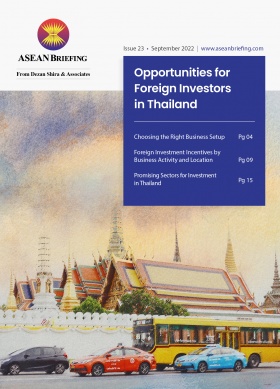Merger Control Regime in Indonesia: Noteworthy Changes for Foreign Investors
Indonesia has made major changes to its merger and acquisition regime. The changes include a requirement to have assets or sales in Indonesia to trigger a merger filing, the introduction of a filing fee, and the reduction in document checks to three business days.
Indonesia has overhauled its merger control regime through the Indonesian Competition Commission (ICC) Regulation No. 3 of 2023 and Government Regulation 20 of 2023. Among the changes include a revised threshold for triggering a merger filing, the introduction of a fee for making merger filings, and the introduction of an online filing system.
The amendments to Indonesia’s merger regulations aim to streamline the merger filing process as well as reduce the backlog of cases currently being handled by the Indonesian Competition Commission. Businesses will also benefit from the reduction in the period of checking documents from 60 to three business days.
Assets-based threshold
A merger filing in Indonesia must meet one of the following asset/sales thresholds:
- The combined value of assets exceeding 2.5 trillion rupiah (US$170 million); or
- The combined value of annual sales exceeds 5 trillion rupiah (US$340 million).
However, the assets-based threshold is now limited to assets located in Indonesia.
Before the amendments, the assets-based threshold could be calculated on the value of worldwide assets, meaning multinational firms could trigger merger filings despite their Indonesian entities having assets that did not meet the thresholds.
Through this amendment, it can be expected that the number of merger filings could reduce, particularly between foreign parties.
Foreign-to-foreign transactions
Under the amendments, any foreign-to-foreign transactions must satisfy the local nexus requirement, meaning all parties to the merger must have assets/generated sales in Indonesia.
Under the previous 2019 regulation, the competition commission implemented the single-nexus method whereby the merger filing could be triggered even if only one party has business activities or assets in Indonesia.
It is expected that the dual nexus approach can also reduce the number of foreign-to-foreign transactions in Indonesia.
New online portal and notification process
Merger filings in Indonesia must be made through a new online portal maintained by the Indonesian Competition Commission, a change from the previous in-person filings. The portal will only be accessible from 9 am to 2 pm.
The notification process is discussed below.
The completeness of the documents submitted to the online portal
This stage involves an administrative review of the supporting documents, and if passed, the transaction then goes through the first substantive review. If the competition commission taskforce is satisfied the transaction will not have a significant impact on the Indonesian market, they will issue a recommendation letter to ICC’s Deputy of Law Enforcement to issue a confirmation letter to this effect.
A second substantive review is then undertaken by the ICC taskforce and if the transaction is deemed to not have a significant impact on the Indonesian market, they will issue a recommendation letter to the ICC Commissioners to this effect.The review of the documents by the ICC has been shortened under the amendments from 60 to 3 business days.
Problematic transactions
If, during the substantive reviews, the ICC task force finds a potential anticompetitive impact, the parties involved will be able to present their case to an ICC tribunal.
Notification fee
Each merger filing is now subject to a fee.
The fee is calculated as 0.004 percent of the combined assets or turnover of the parties (whichever is lower) up to a maximum fee of 150 million rupiah (US$10,000).
About Us
ASEAN Briefing is produced by Dezan Shira & Associates. The firm assists foreign investors throughout Asia and maintains offices throughout ASEAN, including in Singapore, Hanoi, Ho Chi Minh City, and Da Nang in Vietnam, in addition to Jakarta, in Indonesia. We also have partner firms in Malaysia, the Philippines, and Thailand as well as our practices in China and India. Please contact us at asean@dezshira.com or visit our website at www.dezshira.com.
- Previous Article ASEAN, Russia Commit to Strengthening Partnership
- Next Article How GST Liability is Assessed on Low Value Goods Transactions in Singapore








